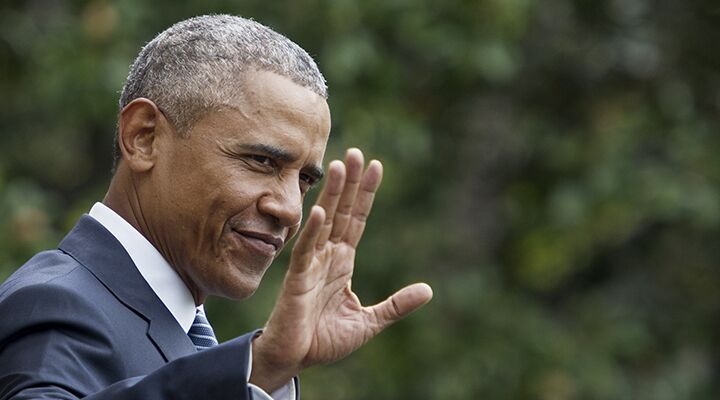
Why the Iran Nuclear Deal Should Unite Us—Not Divide Us
In his speech at a memorial service for the victims of the 2011 Tucson shooting, President Barack Obama said that “the forces that divide us are not as strong as those that unite us.”
Back then, the primary divisive forces he referenced related to gun safety laws and the adequacy of our mental health system. Today, the main forces that divide us are those related to the Iran nuclear deal.
Are the forces that unite us over the Iran nuclear deal stronger than those that divide us?
President Obama’s American University address on August 5 was his landmark speech on the nuclear deal. Based on the widespread criticism it drew, his speech accentuated those forces that divide us—as have multiple other subsequent developments that you read about almost daily now (e.g., top Democrat lawmakers crossing party lines regarding the deal; retired generals waging letter wars over it; opponents and proponents alike spending millions of dollars in ads on the deal; etc.).
Ironically, President Obama’s remarks also emphasized those forces that unite us—or should unite us—over Iran and the Iran nuclear deal.
Among U.S. policymakers, there’s never been disagreement on the danger posed by an Iranian nuclear bomb. Democrats and Republicans alike have recognized that it would spark an arms race in the world’s most unstable region, and turn every crisis into a potential nuclear showdown. (President Obama, August 5)
Everyone is agreed—or ought to be agreed—that the Iran nuclear deal is all about human survival. Trumpet editor in chief Gerald Flurry wrote about the grave stakes in his article “Negotiating Human Survival.”
Iran is the chief state-sponsor of terrorism. It already poses serious threats without nuclear weapons, and President Obama acknowledges that it will pose greater threats with nuclear bombs.
The question, then, is not whether to prevent Iran from obtaining a nuclear weapon, but how. (President Obama, August 5)
Iran’s determination to build nuclear weapons is unquestioned. The Iranian regime has a well-documented history of deception—what former International Atomic Energy Agency (iaea) chief Mohammed El-Baradei called a “trust deficit.”
Additionally, the Islamic religion’s doctrine of Taqiyya sanctions deceit and lying toward non-Muslims.
[S]ome of that money [Iran will gain from sanctions relief] will flow to activities that we object to. … [Iran] supports proxy groups that threaten our interests and the interests of our allies—including proxy groups who killed our troops in Iraq. They try to destabilize our Gulf partners. But Iran has been engaged in these activities for decades. They engaged in them before sanctions and while sanctions were in place. In fact, Iran even engaged in these activities in the middle of the Iran-Iraq War—a war that cost them nearly a million lives and hundreds of billions of dollars. The truth is that Iran has always found a way to fund these efforts …. (President Obama, August 5).
Iran is an irrational actor. Its leaders frequently disregard reason in favor of their ultimate Islamist designs for the Middle East and the world.
Without this deal, Iran will be in a position—however tough our rhetoric may be—to steadily advance its capabilities. Its breakout time, which is already fairly small, could shrink to near zero. (President Obama, August 5).
Iran’s breakout time before it could possess a nuclear bomb has shrunk over the years. Little wonder the Iranians are reluctant to reveal their past activities at nuclear sites like Parchin. They have advanced their capabilities, and they’d rather not reveal exactly how far they’ve progressed.
It would embolden terrorist groups, like Hezbollah, and pose an unacceptable risk to Israel, which Iranian leaders have repeatedly threatened to destroy. (President Obama, August 5).
Iran’s supreme leader Ayatollah Ali Khamenei considers Israel “a real cancerous tumor that should be cut and will be cut.” His regime, in spite of sanctions, sponsors terrorist entities like Hezbollah and Hamas, whose primary goal is to destroy Israel.
[I]ronically, the single greatest beneficiary in the region of [the Iraq War] was the Islamic Republic of Iran, which saw its strategic position strengthened by the removal of its long-standing enemy, Saddam Hussein. (President Obama, August 5).
This fact is abundantly evident today, and it goes to the heart of the threat posed by Iran.
The Trumpet knew about how Iran would benefit from the Iraq War when that war began in 2003. In fact, we knew about it a decade before that! In our July 1992 Trumpet, we quoted the Islamic Affairs Analyst of May 13, 1992: “The main strategic aim of Iran is to dominate the Persian Gulf and environs.”
Then, in December 1994, Mr. Flurry asked in a headline, “Is Iraq About to Fall to Iran?” He asked the same question in the June 2003 issue of the Trumpet.
The Bible discusses the “king of the south,” radical Islam led by Iran, as a terrorizing and dominating power in the region. This is why the Trumpet knew Iran would eventually dominate its biggest enemy at the time, Saddam Hussein’s Iraq. We knew that America’s removal of Hussein would empower Iran more. We knew about Iran’s history of lies and duplicity. The Trumpet has always known about how irrational Iran’s leaders are. We knew about Iran’s nuclear weapons ambitions—just like President Obama does. But unlike the president, we know that Iran will not be stopped from pursuing its efforts by a nuclear deal. In fact, the Bible reveals what will ultimately and permanently stop Iran: full-scale war!
